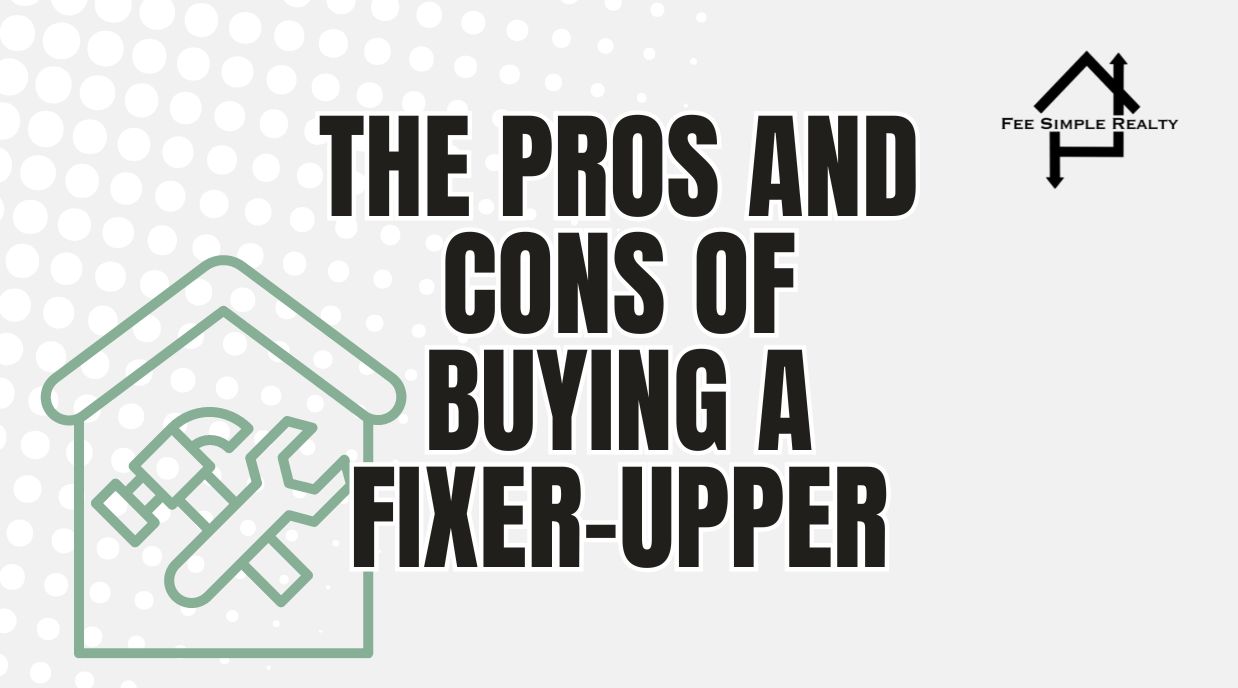The Pros and Cons of Buying a Fixer-Upper
Buying a fixer-upper can be an exciting yet challenging endeavor. It offers the promise of creating a home tailored to your tastes but also comes with potential pitfalls. In this post, we’ll explore the pros and cons of buying a fixer-upper, starting with a simple overview and then delving deeper into each point for a more comprehensive understanding.
Overview: Pros and Cons of Buying a Fixer-Upper
Pros:
- Lower Purchase Price
- Customization Opportunities
- Potential for Profit
- Lower Competition
Cons:
- Unexpected Costs
- Time-Consuming
- Stress and Effort
- Financing Challenges
In-Depth Analysis: Pros and Cons of Buying a Fixer-Upper
Pros
1. Lower Purchase Price
Simple Explanation: Fixer-uppers are typically priced lower than move-in-ready homes.
In-Depth Analysis: Buying a fixer-upper can be a more affordable way to enter the housing market, especially in desirable areas where property prices are high. The lower purchase price often reflects the condition of the home and the amount of work needed. This initial cost saving can be substantial, allowing buyers to invest the difference in renovations and improvements. For those with a smaller budget, this can be a key advantage, enabling them to purchase a property they otherwise couldn’t afford.
2. Customization Opportunities
Simple Explanation: You can renovate the home to suit your personal tastes and needs.
In-Depth Analysis: One of the most appealing aspects of buying a fixer-upper is the ability to customize the property. From choosing paint colors and flooring to redesigning the kitchen and bathrooms, buyers can create a space that reflects their style and meets their needs. This level of personalization can transform a house into a dream home. Additionally, it allows for unique and creative solutions that might not be available in a standard, move-in-ready home.
3. Potential for Profit
Simple Explanation: Renovating a fixer-upper can increase its market value.
In-Depth Analysis: Investing in a fixer-upper can be financially rewarding. By purchasing a property at a lower price and making strategic improvements, buyers can significantly increase the home’s value. This can result in a substantial profit if the home is later sold. For investors, this potential for profit makes fixer-uppers an attractive option. However, it requires careful planning and budgeting to ensure that the cost of renovations does not exceed the potential increase in value.
4. Lower Competition
Simple Explanation: There is often less competition when buying a fixer-upper.
In-Depth Analysis: Move-in-ready homes in desirable areas can attract multiple buyers, leading to bidding wars and higher prices. In contrast, fixer-uppers tend to have fewer interested buyers due to the additional work required. This lower competition can make it easier to negotiate a favorable purchase price and secure the property. For buyers willing to take on the challenge, this can be a strategic advantage in a competitive market.
Cons
1. Unexpected Costs
Simple Explanation: Renovations can be more expensive than initially anticipated.
In-Depth Analysis: One of the biggest risks of buying a fixer-upper is the potential for unexpected costs. Renovation projects often encounter unforeseen issues such as structural problems, outdated wiring, or plumbing issues that can significantly increase the budget. It’s essential for buyers to have a contingency fund and to be prepared for these surprises. Conducting a thorough home inspection before purchase can help identify potential problems, but it’s not foolproof.
2. Time-Consuming
Simple Explanation: Renovating a fixer-upper takes time and can delay moving in.
In-Depth Analysis: Renovations can be a lengthy process, depending on the extent of the work needed. From obtaining permits to completing the construction, the timeline can stretch from weeks to months or even longer. This can be challenging for buyers who need to move in quickly or who are living elsewhere during the renovations. The time commitment can also interfere with daily life and require significant planning and patience.
3. Stress and Effort
Simple Explanation: Renovating a home is stressful and requires a lot of effort.
In-Depth Analysis: Taking on a fixer-upper is not for the faint of heart. It requires a significant amount of effort, organization, and decision-making. Managing contractors, sticking to a budget, and overseeing the project can be overwhelming and stressful. Buyers need to be prepared for the physical and emotional toll that renovations can take. Support from family, friends, or a professional project manager can help alleviate some of the stress.
4. Financing Challenges
Simple Explanation: Securing financing for a fixer-upper can be more complicated.
In-Depth Analysis: Traditional mortgages may not cover the cost of a fixer-upper, especially if the home is in poor condition. Buyers may need to explore alternative financing options such as renovation loans, which can be more complex and require additional documentation. It’s important to understand the financing options available and to work with lenders experienced in handling fixer-upper properties. This ensures that buyers have the necessary funds to complete the renovations.
Conclusion
In conclusion, buying a fixer-upper in Central Florida can offer numerous benefits, such as a lower purchase price, customization opportunities, potential for profit, and lower competition. However, it also comes with challenges like unexpected costs, time-consuming renovations, stress, and financing difficulties. Weighing these pros and cons carefully will help you decide if a fixer-upper is the right choice for you.
Other Related Topics
If you found this information helpful, you might also be interested in learning about the top home improvements that increase property value, understanding the role of a real estate attorney in property transactions, or exploring different types of real estate ownership. Stay tuned for more insightful real estate posts!
